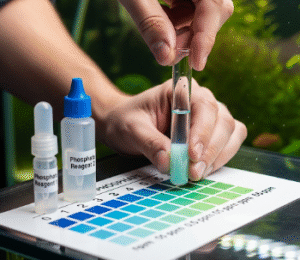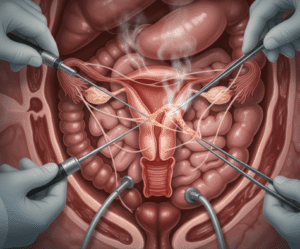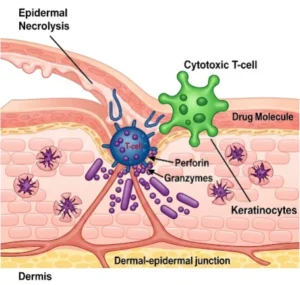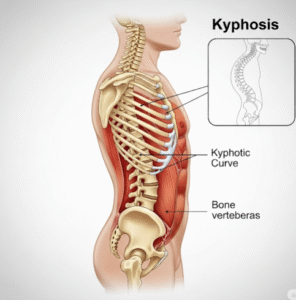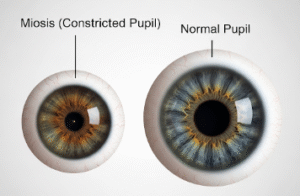Overview
A metallic taste, medically referred to as dysgeusia, is a condition where the mouth develops an unusual, often persistent metallic or bitter flavor. This altered sense of taste can affect eating habits, nutrition, and overall quality of life. Although often temporary and benign, a metallic taste may sometimes signal an underlying medical condition or medication side effect.
In Korea, management of metallic taste involves diagnostic evaluation by otolaryngologists, dentists, and general physicians, along with targeted treatments to address both symptoms and underlying causes.
Key Facts
➤ Metallic taste is a distorted perception of taste, often described as bitter, sour, or metallic.
➤ It may affect all foods, specific foods, or beverages.
➤ Causes include medications, infections, nutritional deficiencies, or systemic diseases.
➤ Symptoms can be temporary or persistent depending on the underlying trigger.
➤ In Korea, treatments may include medication adjustment, oral hygiene management, and specialized therapies.
What is Metallic Taste?
Metallic taste occurs when taste perception is altered, often due to chemical changes in saliva, nerve dysfunction, or systemic factors.
➔ Transient metallic taste – occurs after consuming certain foods, dental procedures, or medications.
➔ Persistent metallic taste – may be linked to chronic illness, nutrient deficiency, or medication side effects.
➔ The sensation can be constant, intermittent, or food-specific.
Commonly, patients describe it as:
- Metallic, bitter, or sour flavor.
- Lingering after meals or brushing teeth.
- Altered perception of normally pleasant flavors.
Symptoms Related to Metallic Taste
➤ Persistent metallic or bitter flavor in the mouth.
➤ Loss of appetite due to unpleasant taste.
➤ Changes in food preferences or difficulty enjoying meals.
➤ Dry mouth or altered saliva production.
➤ Occasionally associated with nausea or vomiting if taste is severe.
Causes / Possible Causes
Metallic taste may result from oral, systemic, or medication-related factors:
Oral Causes
➤ Poor oral hygiene, dental infections, or gingivitis.
➤ Recent dental procedures or oral surgery.
➤ Gum disease or metallic dental restorations.
Medication-Induced Causes
➤ Antibiotics (e.g., metronidazole, tetracyclines).
➤ Antihypertensives, diuretics, or chemotherapy drugs.
➤ Supplements with high zinc, iron, or copper content.
Systemic and Medical Causes
➤ Respiratory infections – sinusitis, colds, or COVID-19.
➤ Gastroesophageal reflux disease (GERD) causing acid taste.
➤ Kidney or liver disease, leading to toxin accumulation.
➤ Neurological disorders affecting cranial nerves involved in taste.
➤ Vitamin deficiencies (B12, zinc, or folate).
Other Contributing Factors
➤ Smoking or alcohol use.
➤ Dehydration or dry mouth (xerostomia).
➤ Pregnancy-related hormonal changes.
Risk Factors
➤ Age-related changes in taste perception.
➤ Taking multiple medications simultaneously.
➤ Poor oral hygiene or pre-existing dental issues.
➤ Chronic illnesses affecting kidneys, liver, or nervous system.
➤ Smoking, alcohol consumption, or dietary imbalances.
Complications
Although metallic taste itself is rarely dangerous, it may lead to:
➤ Reduced appetite and unintentional weight loss.
➤ Poor nutritional intake, leading to deficiencies.
➤ Psychological distress or irritability due to persistent unpleasant taste.
➤ Masking of other oral health issues if not investigated.
➤ Interference with daily eating habits and social activities.
When Should I See My Doctor?
Seek medical advice if:
➤ Metallic taste persists for more than two weeks without apparent cause.
➤ Associated with other systemic symptoms, such as fatigue, nausea, or swelling.
➤ Linked to new medication use or changes in treatment.
➤ Accompanied by oral sores, gum bleeding, or dental pain.
➤ You have chronic medical conditions (kidney, liver, or neurological disorders).
Care and Treatment
Lifestyle and Home Measures
➤ Maintain excellent oral hygiene – brush teeth twice daily and floss.
➤ Rinse mouth with baking soda solution or saltwater to neutralize taste.
➤ Stay hydrated to prevent dry mouth.
➤ Consume tangy or flavorful foods to mask metallic taste.
➤ Avoid smoking, excessive alcohol, and strong-flavored medications if possible.
Medical Treatments
➤ Adjusting or switching medications that may cause metallic taste.
➤ Treating underlying oral infections or dental issues.
➤ Managing systemic conditions such as GERD, kidney, or liver disease.
➤ Vitamin supplementation if deficiencies are identified.
➤ In severe cases, medications to improve saliva production or taste perception may be prescribed.
Preventive Measures
➤ Regular dental checkups to prevent oral causes.
➤ Monitor medication side effects with a healthcare provider.
➤ Balanced diet rich in vitamins and minerals.
➤ Early treatment of sinus, respiratory, or systemic infections.
Treatment Options in Korea
Korea offers comprehensive care for metallic taste:
Diagnostic Services
➤ Detailed oral examination by dentists and ENT specialists.
➤ Blood tests for kidney, liver, and vitamin levels.
➤ Assessment of medications with potential taste-altering effects.
➤ ENT evaluation for sinus, throat, or respiratory infections.
Therapies and Supportive Care
➤ Medication review and adjustment under physician guidance.
➤ Treatment of underlying systemic or oral causes.
➤ Saliva-stimulating therapies and oral rinses for symptomatic relief.
➤ Integrative approaches such as traditional Korean medicine and acupuncture.
➤ Dietary counseling and nutritional support to improve taste perception.
✅ In summary: Metallic taste (dysgeusia) is an altered perception of taste that can result from medications, oral conditions, infections, or systemic diseases. While often benign, persistent or severe metallic taste warrants evaluation. In Korea, patients benefit from advanced diagnostics, treatment of underlying causes, medication management, and integrative therapies to restore normal taste and improve quality of life.


